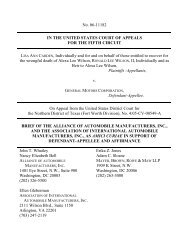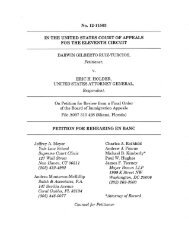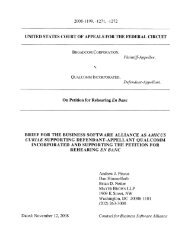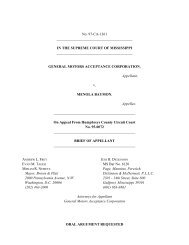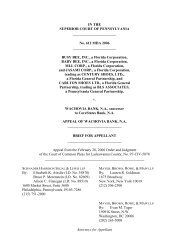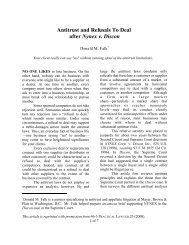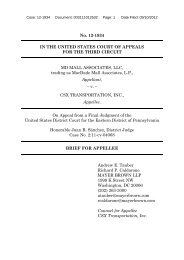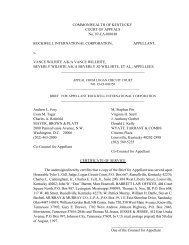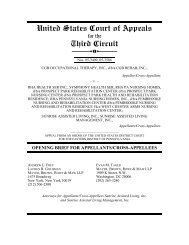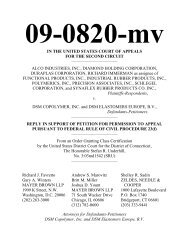No. 5-99-0830 IN THE APPELLATE COURT OF ... - Appellate.net
No. 5-99-0830 IN THE APPELLATE COURT OF ... - Appellate.net
No. 5-99-0830 IN THE APPELLATE COURT OF ... - Appellate.net
Create successful ePaper yourself
Turn your PDF publications into a flip-book with our unique Google optimized e-Paper software.
insurance regulators and consumer advocates would hardly support legislation allowing<br />
insurance companies to specify those parts.<br />
In any event, even if the court had been free to accept plaintiffs’ representations<br />
about what they intended to prove, it was error to certify the class in the face of State Farm’s<br />
repeated protestations that it had a right to defend each class member’s claim based on the<br />
quality of the parts that were actually installed on the vehicles in question. While plaintiffs<br />
made a choice to present generalized proof, State Farm had a right under both the Illinois<br />
and United States Constitutions to present a full-scale defense to each individual class<br />
member’s claim. See Lindsey v. <strong>No</strong>rmet, 405 U.S. 56, 66 (1972) (“Due process requires that<br />
there be an opportunity to present every available defense”). To deny a defendant the right<br />
to “present a full defense on the issues would violate due process.” Western Elec. Co. v.<br />
Stern, 544 F.2d 1196, 11<strong>99</strong> (3d Cir. 1976). The court in Stern concluded that, even if<br />
plaintiffs could “make out a prima facie case” of a Title VII violation “without introducing<br />
evidence on individual cases,” “defendants must be allowed to present any relevant rebuttal<br />
evidence they choose, including evidence that there was no discrimination against one or<br />
more members of the class.” Id. (emphasis added). So too, in this case, even if plaintiffs<br />
could have found a way to present their prima facie breach of contract case on a classwide<br />
basis, State Farm was entitled to defend itself by presenting evidence about individual<br />
repairs to prove that it did not breach its contracts with particular members of the class.<br />
Because that kind of detailed, individual proof cannot feasibly be presented in the context<br />
of a class action, it was an abuse of discretion — and a deprivation of State Farm’s state and<br />
federal due process rights — to certify the class.<br />
-43-



